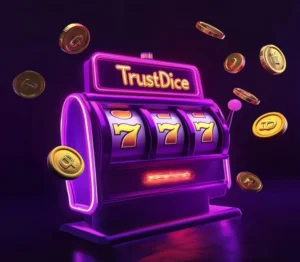
In the last ten years, online gambling has spiked hard, and slots have emerged as probably one of the most popular ways to blow some time. Whether you are a game developer and wish to tap into this lucrative world or just an inquisitive player wanting to learn about how your favorite games come to life, it is essential to know online slot development law. In this article, we explain important legal features of the production and provision of online slots with simple words that will bring complex laws closer to all readers.
Contents
- 1 The Basics of Online Slot Development
- 2 What Are Online Slots?
- 3 How Are They Developed?
- 4 The Role of Software Developers and Platforms
- 5 Legal Requirements for Online Slot Development
- 6 Licensing and Regulations
- 7 Jurisdictional Differences
- 8 Age and Identity Verification
- 9 Intellectual Property Rights
- 10 Copyrights and Trademarks in Slot Development
- 11 Protecting Game Designs and Software
- 12 Conclusion
The Basics of Online Slot Development
What Are Online Slots?
Online slots are electronic versions of common casino slot games. They allow the player to spin reels queued with different symbols in an attempt to line them against winning combinations. As for online slots, these have the flexibility of including a range of graphics and themes and highly engaging in-game features that make them interesting to play.
How Are They Developed?
It takes creative design as well as technical programming to develop an online slot. They build the game, they design how it is going to look and sound (like themes, graphics effects, etc.) and then they do everything behind the scenes as well, such as making sure their resources work properly in-game while also maintaining a balanced game. Software in online slots is programmed to always provide varying combinations, making all slot spins random.
The Role of Software Developers and Platforms
The software developers who write the underlying code make online slot games work behind the scenes. They work with developers to produce software that visualizes and devises the user interface for games produced by graphics, sounds, and user experience professionals. Also, those slots are available on different gaming websites to allow players to play games easily.
Legal Requirements for Online Slot Development
Licensing and Regulations
Probably the most important part of creating online slots is securing all necessary licenses. Different jurisdictions have different gambling laws, where developers need to ensure they comply with the regulations of every land they are targeting, and licenses are generally provided by governmental or regulatory bodies with legal requirements around fairness, security, and responsible gambling.
Jurisdictional Differences
Gambling laws vary from one country/region to another. Countries like Russia and Norway have strict prohibitions or outright bans on online gambling, whereas in many others, the industry is embraced with well-defined regulations. Given the difficulties that arise from jurisdictional differences for developers, it typically requires a few extra licenses to be able to legally operate in multiple markets. It is important to meet the legal requirements associated with each target market to avoid legal difficulties.
Age and Identity Verification
Again, online slot developers must have strict age and identity checks in place to prevent underage gambling. This will usually entail verifications, and all online UK casinos ask that players provide some sort of age verification during the registration process. Not only is compliance with these measures a legal obligation and part of fostering responsible gambling, but it also benefits no one when sports betting entities promote any sort of unfair play or collusion.
Intellectual Property Rights
Copyrights and Trademarks in Slot Development
IP protection is a necessity in the online slot industry. This is where copyright law applies, and just by making your original game design, theme, and mechanics, you are under the protection of copyright as video game companies invest huge amounts of time and money to create something unique. A developer may also get slapped with a trademark lawsuit, especially if they include recognizable brands or characters in the game. Securing all IP rights helps avoid unauthorized use and protects the creative investments of the developer.
Protecting Game Designs and Software
After copyright and trademark, devs need to protect their software designs (and probably game designs) against piracy and unauthorized distribution. This requires, on the one hand, so-called “external” measures of a technical nature (most famously encryption and secure coding practices) as well as legal aspects, like non-disclosure agreements (NDAs) between partners and employees. By protecting these assets, the integrity and originality of each game can be maintained.
Conclusion
Navigating the legal landscape of online slot development is an arduous yet necessary operation for any developer striving to make a dent in the overcrowded world of online gambling. Legal compliance is just one step toward maintaining the proper operation of an online slot game; everything from obtaining requisite licenses and protecting intellectual property to regulating fair play and safeguarding user data contributes to the broader context. Adapting to new changes and requirements while remaining compliant will be crucial to operating a successful and reputable online game site in a market saturated with providers.